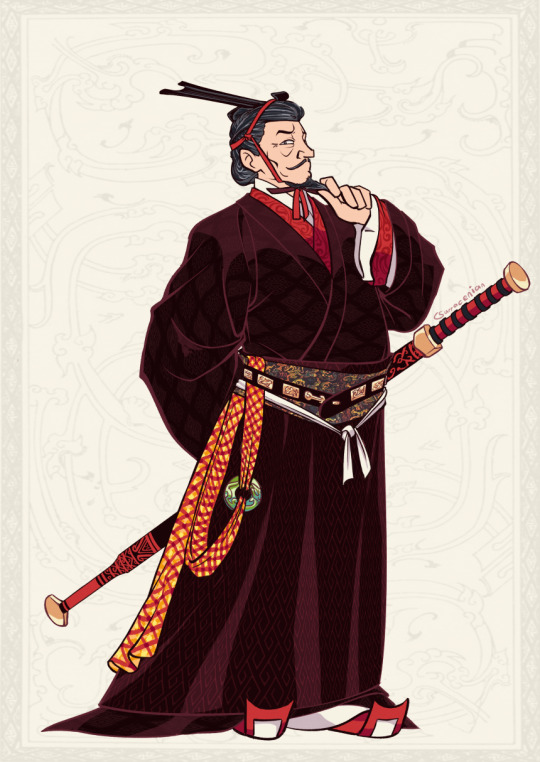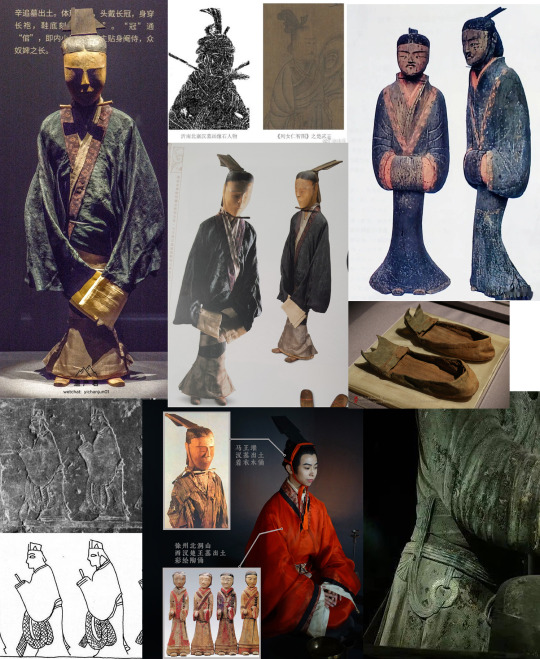#Hanfeizi
Explore tagged Tumblr posts
Text
Ancient India and China - Vocabulary
Vedas -- a collection of hymns, chants, ritual instruction, and other religious teachings
Brahman -- a single spiritual power beyond the gods and existing in all things
Moksha -- union with Brahman
Karma -- action and result
Dharma -- personal religious and moral duties
Ahimsa -- nonviolence to all people and things
Siddhartha Gautama -- a Hindu prince -- seeked causes of human suffering
Eightfold Path -- right aspirations -- directs people in achieving moral life goals and enlightenment
Nirvana -- union with the universe
Chandragupta Maurya -- founded the first Indian empire
Asoka -- Chandragupta's grandson
Dowry -- payment to the bridegroom
Shang -- China's first dynasty
Clans -- groups of families -- share a common ancestor
Mandate of Heaven -- divine right to rule
Dynastic Circle -- rise and fall of dynasties
Feudalism -- where lords govern their own land but owed military support to a leader
Zhou Dynasty -- dynasty that established feudalism
Philosophy -- system of ideas
Confucius -- philosopher -- concerned with social order and good government
Laozi -- philosopher -- founded Daoism
Shi Huangdi -- "first emperor"
Qin Government -- Shi Huangdi's government
Hanfeizi -- philosopher -- inspired legalism
Expansionism -- policy of increasing territory
.
Patreon
#studyblr#notes#history#historyblr#world history#world history notes#ancient india#ancient china#philosophy#history of philosophy#world history vocab#history vocab#history vocabulary#vocab list#vocabulary list#historical governments#civilization#hanfeizi#shi huangdi#confucius#laozi#zhou dynasty#shang#dynastic circle
9 notes
·
View notes
Text

Han Fei and Ying Zheng from 9 Songs of the Moving Heavens
#9 Songs of the Moving Heavens#qin's moon#donghua#chinese animation#3d animation#history#Qin Shi Huang#Han Feizi#HanFeiZi
3 notes
·
View notes
Text
Dead Lovers Are Easiest
Il n’y a rien plus sensible qu’un cadavre (There is nothing more sensitive than a corpse)—Anatole Le Braz, Magies de la Bretagne The dead are easy to love There’s not a word of a lieComes out of their mouthsThat we do not place thereOurselves Do not be afraidTo say the names of the deadYou will not raise themFrom their silent gravesAll their ghosts are in your head Ghosts are luxuries Fireside…

View On WordPress
#Throw Poetry Collective#Alain Bonkela Isekatuli#Anatole Le Braz#Cutty#韓非子#韩非子#Hanfeizi#Magie de la Bretagne
0 notes
Text
actually, speaking of of Japanese coinages, there's a japanese expression, 逆鱗に触れる, gekirin ni fureru, literally "to touch [someone's] reverse scales" with the figurative meaning of "to incur the wrath of a superior" which comes from a passage in the Hanfeizi which recounts, in paraphrase, that dragons are beasts like any other, and like other beasts they may be tamed and trained, but that they have reverse scales (逆鱗)under their necks that, when touched, will cause them to run wild and kill their handler; Han Fei then says that the rulers of men are like these dragons, and their advisers must learn where these scales are in their hearts.
Given the provenance I always assumed the same expression existed in vernacular Chinese but as far as I can tell it doesn't at all
25 notes
·
View notes
Text


this is my favourite part of the hanfeizi so far
3 notes
·
View notes
Note
I watched your Yan Wushi video, and now CRAVE a Hua Cheng and Yan Wushi meeting (showdown!). Battle of century! These two would roast each other alive! Hopefully figuratively! All while their spouses talk about the weather.
okay okay here’s the thing though:
while Shen Qiao and Xie Lian are definitely two people who would have a very earnest, engaged conversation about weather (“wait, you also got caught in an immense sandstorm while looking for a ghost city in the desert?” “yeah, it was crazy! got pulled into a vortex and everything!”), they are, first and foremost, absolute battle nerds and would lose entire hours talking about swords, sword techniques, sword forms, and sword gossip (everyone and their mother uses swords in the jianghu, there’s lots of gossip)
meanwhile, Hua Cheng is sulking because Xie Lian made him promise not to smite any mortals on this double date and apparently Yan Wushi has no off-switch
#personally I think that Yan Wushi and Hua Cheng start out by sniping at each other#but specifically in a way that shows off the breadth of their learning and knowledge#only to accidentally get suckered into a genuine conversation debating the merits of the finer points of the Hanfeizi#if we woke up today and wanted to choose pure chaos we can throw Wen Kexing and Zhou Zishu into the mix#though if Wen Kexing were in a room with either Yan Wushi or Hua Cheng#the room would end in a fight#like#the entire teahouse would be demolished
51 notes
·
View notes
Photo


Qin & Han Dynasty Imperials
Contrary to popular belief, Chinese emperors and others in the imperial family would not have worn the more famous ceremonial Mianfu-robes during the Qin and much of Han Dynasty, but the more comparatively austere "Jūnxuán"(袀玄), which was a Qin invention, because they weren't into the Zhou-Etiquette informed Mianfu, as Qin Kingdom then later Empire dedicated its state philosophy to Hanfeizi's Legalism.
Which basically means Every Single Popular Depiction Of Qin Shihuang and Emperor Wu of Han you've likely seen are actually wrong hahaha
(You can read more of the history from my patreon here!)

(references used, more detailed in the patreon post)
#hanfu#chinese history#ancient china#han dynasty#qin dynasty#汉代#秦#historical fashion#chinese clothing
60 notes
·
View notes
Note
I know the term cutsleeve means a gay man, from that story of the guy who cut his sleeve off for his sleeping lover, but I was wondering if there was such a term for lesbians? or if not, what sort of language would have been used to call a woman who loves women?
oooh, I keep getting asks about lesbians in ancient China and I keep failing to tag them in a way that I can find again when a similar question comes up.
(I’m going to google for this answer, absorb with copious salt!)
so this wild baidu-zhidao page lists seven different ways of referring to same-sex love in pre-modern China:
余桃 yutao -- comes from an anecdote/fable in the 《韩非子》Hanfeizi and also《说苑》Shuiyuan about Mizi Xia, who offered his lover, the King of Wei, a partially-eaten peach because the flavor was good and he wanted to share.
断袖 duanxiu -- we know this one, emperor’s and sleeping lovers and sleeves
安陵 anling -- named after 安陵君 Anling-jun, lover of King Hong of Chu
龙阳 longyang -- named after 龙阳君 Longyang-jun, a legendarily sexy man, lover of the King of Wei
磨镜 mojing -- literally, ‘grinding mirrors.’ Used to refer to lesbian relationships because apparently the way you polished mirrors in ye olde China was similar to some kind of lesbian sex act?
契若金兰 qiruojinlan -- ‘as close as golden orchids,’ a reference to the Golden Orchid societies that sprung up during the Qing Dynasty, in which women entered into marriage-like relationships with each other
菜户对食 caihuduishi -- 菜户 is tripping me up but 对食 means ‘to eat, facing each other.’ 菜户对食 specifically refers to relationships in the imperial 后宫 (...fine, harem). 菜户, specifically, is used to refer to relationships between eunuchs and women; 对食 is used to refer to relationships between two women of the imperial harem. This derives from the practice of husband and wife sitting across from each other at a table to eat, but, uh... guess the LGBTQIA+ meaning took over the straight meaning here
331 notes
·
View notes
Text
And it was for just this reason that my life at the time was both hard and “transcendent.” For example, in terms of reading and learning, at the time I did not read to prepare for the university entrance exams (which I did not expect to be restored), nor to develop any professional specialty, it was instead an aimless “pursuit of knowledge and truth.” From Analytic Geometry to Lu Xun’s essays, from The Basics of Electrical Engineering to The History of the 1871 Commune, from Improved Use of Mountainous and Infertile Land to Collected Commentaries on Hanfeizi, from The Economic Geography of South China to Socialized Agriculture in the Soviet Union, from Zhang Daozhen’s book on English grammar to Wang Li’s book on classical Chinese, from the planning booklets of various county offices to the musical score of Zhuang opera from Beilu, every book that fell into my hands slaked my thirst.
Oh shit that’s me.
Like I’ve never had to move to a tiny mountain village for a decade because my political faction was defeated in a violent struggle but if I did that’s exactly what I would have done.
1 note
·
View note
Quote
Nietzscheans, and others in the “atheist outgroup”, who continually pointed out that the humanist morality that the “New Atheists” clung to was merely Christianity with the supernatural, ritual, and a few rules of sexual morality filed off, and that their “New Atheism” was at least as old as the decades-dead Bertrand Russell, were never particularly welcome there. While they loved arguing about religion, re-evaluating the foundations of their humanist worldview was just about the last thing they wanted to do. A re-evaluation of all values? Tossing out liberalism, socialism, and the rest of the lumber of the ages and embracing the radical freedom of a world in which we can truly define good and evil in our own image, or transcend them completely? Those notions utterly terrified the “New Atheists”.
Commenter “Hanfeizi”
3 notes
·
View notes
Photo



Patreon | Ko-fi
#history#historyblr#history notes#world history#world history notes#western civ#western civ notes#western civilization#western civilization notes#western civ 1#western civilization 1#western civ 1 notes#western civilization 1 notes#ancient india#ancient china#china#india#ancient india notes#ancient china notes#hanfeizi#laozi#ahimsa
35 notes
·
View notes
Text


I didn't expect this manhwa to expand on eastern history (the protagonist is a retired history professor). It was pretty cool to see Han Fei's works mentioned. <3
I can't wait to read The Crownless Queen season 2. The team on tapas are on hiatus since October 2023.
0 notes
Link
0 notes
Note
Hi! Sorry for bothering you, but you recommend any Japan/China philosophy/beliefs? I want to learn more about it, but I'm not sure where to start.
Personally as far as Chinese philosophies I'm principally interested in Legalism and Taoism and would recommend like, the Zhangzi, the Laozi, the Hanfeizi, the Shang Yang Shu etc. ctext is a great resource if you wanna read them. Otherwise I mean, it's probably best to familiarize yourself with the outlines or Confucianism since it's definitely the philosophy that had the most influence and currency with everyday people in the dynastic era
As for specifically Japanese stuff, Idk much about modern Japanese philosophy honestly but you couldn't go wrong reading about Shinran and Nichiren and their developments of Buddhist thought in the Japanese context, since Joudo Shinshuu and Nichiren Buddhism are probably the two most organically popular and influential religious practices in Japan (get fucked state Shinto)
4 notes
·
View notes
Text
so far all the advice in the hanfeizi has been incredibly straight forward, realistic, down to earth. like whether it's good advice is debatable, but it's all ideas grounded in reality, except for a little bit that got a bit daoist
but I just hit a part that's like "Do NOT listen to degenerate music your music master learned from a ghost who drowned himself in a river, you will lose your state!!!!"
2 notes
·
View notes